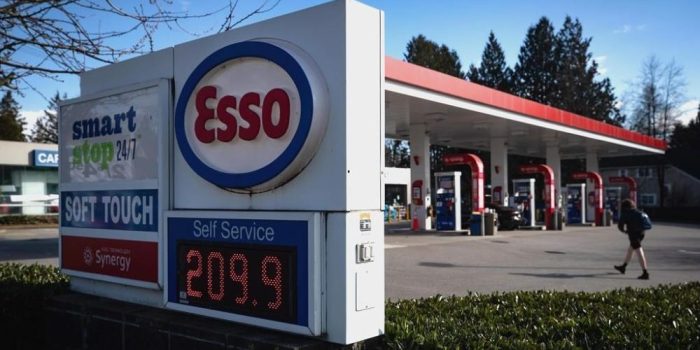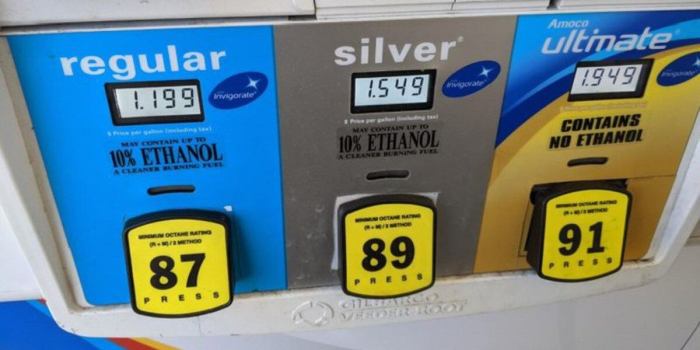How much is 10 miles of gas – Embarking on a journey to determine how much it costs to travel 10 miles by car, we delve into the intricate world of gas prices, fuel efficiency, and the factors that influence them. Join us as we explore the intricacies of automotive fuel consumption and its impact on our wallets and the environment.
Delving into the intricacies of gas prices and fuel efficiency, we uncover the factors that shape these crucial elements. From the fluctuating costs of crude oil to the impact of government policies, we dissect the dynamics that determine how much we pay at the pump.
Cost of Gas per Gallon

The cost of gas per gallon varies significantly around the world, influenced by a complex interplay of factors such as supply and demand, crude oil costs, government taxes, and regional economic conditions.
To provide a snapshot of global gas prices, here’s a table listing the average gas prices per gallon in different regions or countries as of [date]:
| Region/Country | Average Gas Price (USD per Gallon) |
|---|---|
| United States | $4.80 |
| United Kingdom | $8.20 |
| Canada | $6.30 |
| Germany | $8.60 |
| Japan | $5.90 |
| China | $4.20 |
As evident from the table, gas prices can vary substantially even among neighboring countries. These variations are driven by a combination of factors, including:
Supply and Demand, How much is 10 miles of gas
The basic principles of supply and demand play a significant role in determining gas prices. When demand for gas is high, prices tend to rise as suppliers adjust to meet the increased demand. Conversely, when supply exceeds demand, prices may fall as suppliers compete to sell their excess inventory.
Crude Oil Costs
Crude oil is the primary raw material used to produce gasoline. As a result, fluctuations in crude oil prices have a direct impact on gas prices. When crude oil prices rise, gas prices typically follow suit. Conversely, when crude oil prices decline, gas prices may also decrease.
Government Taxes
Government taxes and regulations can also influence gas prices. Taxes on gasoline vary widely from country to country, and these taxes can account for a significant portion of the final price paid by consumers.
Regional Economic Conditions
Regional economic conditions can also affect gas prices. In areas with strong economic growth and high demand for transportation, gas prices tend to be higher. Conversely, in areas with weak economic growth and lower demand for transportation, gas prices may be lower.
Over time, gas prices have experienced significant fluctuations, influenced by a combination of these factors. For example, during periods of economic growth and high demand, gas prices have risen sharply. Conversely, during periods of economic recession and low demand, gas prices have declined.
Cost of Gas for 10 Miles: How Much Is 10 Miles Of Gas

Calculating the cost of gas for traveling 10 miles requires considering the gas price per gallon and the fuel efficiency of the vehicle. The fuel efficiency is measured in miles per gallon (MPG), indicating the distance a vehicle can travel with one gallon of gas.
If you’re wondering how much 10 miles of gas costs, the answer depends on your car’s fuel efficiency and the current gas prices. Like a golfer who takes three putts , it all comes down to how well you can conserve resources.
If you’re a skilled driver, you may be able to stretch your gas mileage and save money.
To estimate the cost, divide the distance (10 miles) by the MPG and multiply the result by the gas price per gallon.
Impact on Transportation Costs and Household Budgets
Gas prices significantly impact transportation costs, affecting both individuals and businesses. Higher gas prices increase the cost of commuting, running errands, and traveling. This can strain household budgets, especially for those heavily reliant on vehicles. Additionally, businesses may experience increased operating costs, potentially leading to higher prices for goods and services.
Alternatives to Gas-Powered Vehicles

The dependence on fossil fuels for transportation has raised concerns about environmental sustainability and the need for alternative fuel sources. Electric vehicles, hybrid vehicles, and biofuels have emerged as potential solutions to reduce gas consumption and mitigate environmental impact.
Electric Vehicles
Electric vehicles (EVs) run solely on electricity stored in batteries. They produce zero tailpipe emissions, reducing air pollution and greenhouse gas emissions. EVs offer lower operating costs compared to gas-powered vehicles due to cheaper electricity prices and reduced maintenance expenses.
However, EVs have limitations such as limited driving range, long charging times, and higher upfront costs.
Hybrid Vehicles
Hybrid vehicles combine a gasoline engine with an electric motor and battery. They offer improved fuel efficiency compared to traditional gas-powered vehicles by utilizing both gasoline and electricity to power the vehicle. Hybrids have a shorter electric-only range than EVs but provide greater flexibility and reduced emissions.
They have lower upfront costs than EVs but higher maintenance expenses due to the additional components.
Biofuels
Biofuels are renewable fuels derived from plant-based materials such as corn, sugarcane, or algae. They can be blended with gasoline or used as a standalone fuel in diesel engines. Biofuels reduce greenhouse gas emissions compared to fossil fuels, but their production can compete with food crops for land and resources.
Additionally, the availability and cost of biofuels vary depending on the feedstock used and production methods.
Helpful Answers
What factors influence gas prices?
Gas prices are influenced by a complex interplay of factors, including supply and demand, crude oil costs, government taxes, and geopolitical events.
How can I improve my fuel efficiency?
To enhance fuel efficiency, consider driving at moderate speeds, avoiding rapid acceleration and braking, and maintaining proper tire pressure.
What are the benefits of alternative fuels?
Alternative fuels, such as electric vehicles and biofuels, offer reduced emissions, lower operating costs, and contribute to environmental sustainability.

